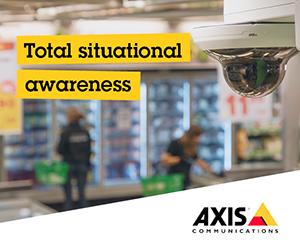industry focus
CCTV must be necessary and proportionate – ICO
The UK’s Information Commissioner’s Office (ICO) has warned CCTV operators that surveillance cameras must only be used as a necessary and proportionate response to a real and pressing problem.
The warning emanated on the same day that the watchdog body published its updated CCTV Code of Practice that includes a look at the data protection requirements placed on the operators of new and emerging surveillance technologies, including drones and body-worn video cameras.
“The UK is one of the leading users of CCTV and other surveillance technologies in the world,” said Jonathan Bamford, the ICO’s head of strategic liaison.
“The technology on the market today is able to pick out even more people to be recorded in ever greater detail. In some cases, that detail can then be compared with other databases, for instance when Automatic Number Plate Recognition (ANPR) is used.
This realises new opportunities for tackling problems such as crime, but also poses potential threats to privacy if cameras are just being used to record innocent members of the public without good reason.”
Bamford added: “Surveillance cameras should not be deployed as a quick fix, but rather as a proportionate response to a real and pressing problem. Installing surveillance cameras or technology like ANPR and body-worn video is often seen as the first option, but before deploying such systems we need to understand the problem and whether that’s an effective and proportionate solution. Failure to conduct proper privacy impact assessments in advance has been a common theme in our enforcement cases.”
The updated Code of Practice explains how CCTV and other forms of camera surveillance can be used to process people’s information. The guidance details the issues that operators should consider before installing such surveillance technology, the measures that companies should have in place to make sure an excessive amount of personal information isn’t being collected and the steps organisations should take in order to make sure captured information is kept secure and destroyed once it’s no longer required.
The Surveillance Camera Code’s ‘Guiding Principles’ apply to Police forces, Police and Crime Commissioners and local authorities in England and Wales as described in the Act, and contain advice about recommended operational and technical standards that others may find useful.
“The technology may change but the principles of the Data Protection Act remain the same. CCTV and other surveillance systems need to be proportionate, justifiable and secure in order to be compliant. The updated ICO Code will help to make sure that this situation continues for the years ahead.”
For more information, visit www.ico.org.uk





